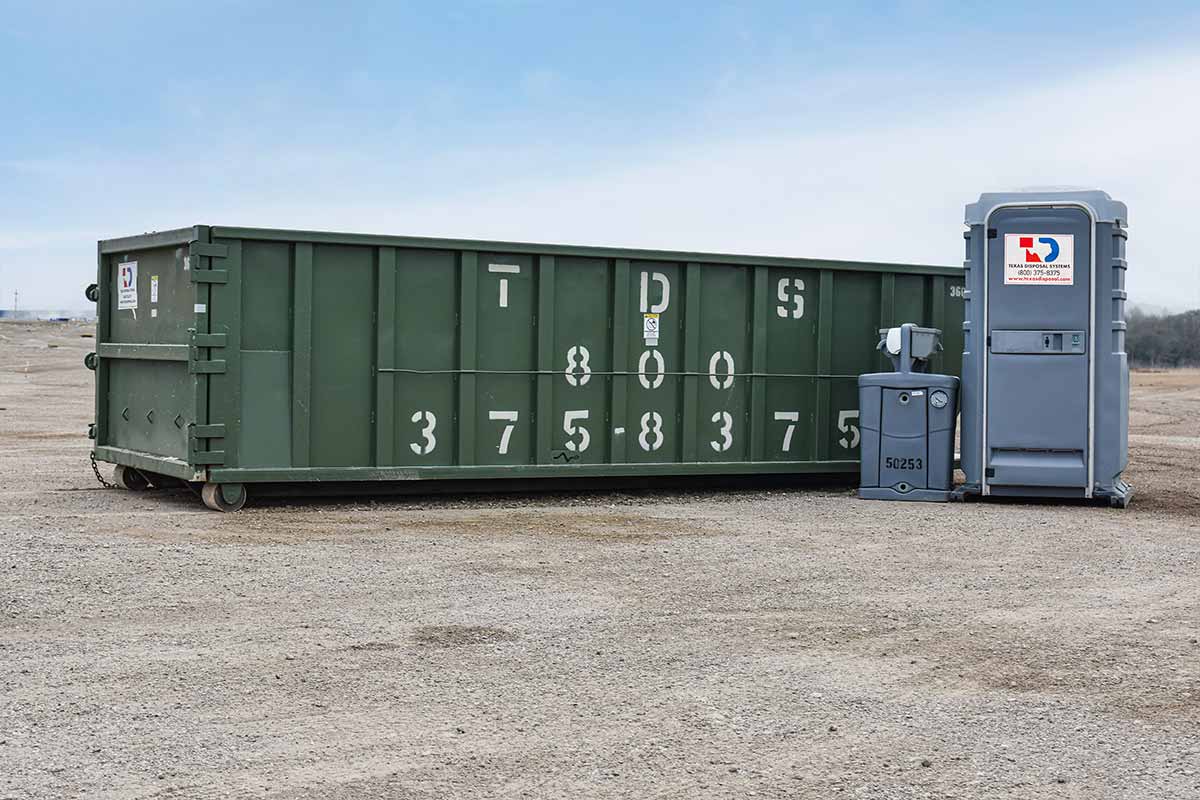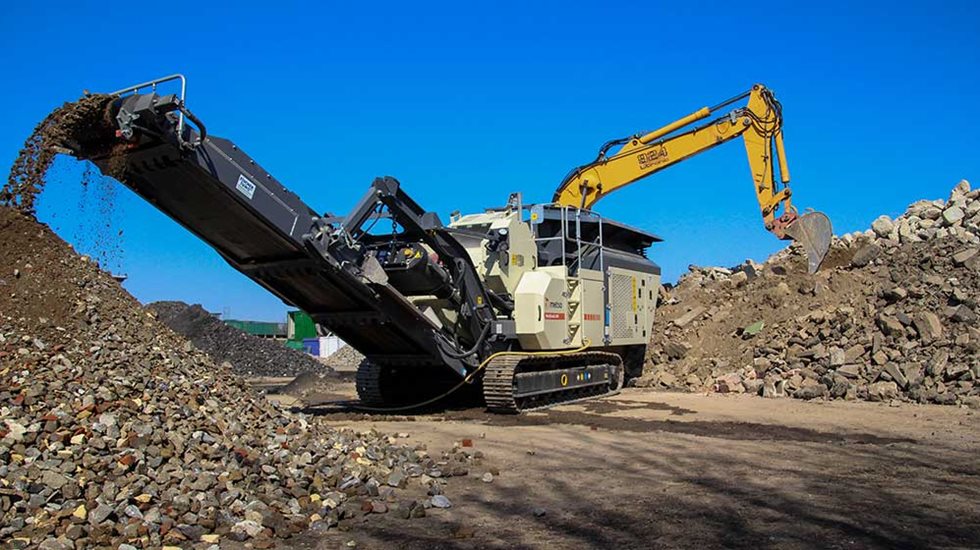When planning a home renovation, spring cleaning, or any large-scale project, renting a dumpster is often the most efficient way to manage waste.
But how much does a 30-yard dumpster weigh, and what does that mean for your project? Understanding its weight is crucial for planning, safety, and compliance.
In this guide, we’ll explain everything you need to know about the weight of a 30-yard dumpster and why it matters.
How much does a 30-yard dumpster weigh?
A 30-yard dumpster can weigh up to 4,000-6,000 pounds when full. It’s commonly used for larger home renovation projects or significant cleanouts.
Key Takeaways
- A 30-yard dumpster typically weighs between 3,000 and 4,000 pounds when empty.
- The weight capacity of the dumpster depends on the materials being disposed of and how full the dumpster is.
- Overloading a dumpster can lead to extra charges and potential safety hazards.
What is a 30-yard dumpster?

A 30-yard dumpster is one of the most common dumpster sizes used for large residential and commercial cleanups.
It has a volume capacity of 30 cubic yards, which is equivalent to about 9 pickup truck loads of debris.
These dumpsters are typically used for large home renovations, roofing projects, or for clearing out large amounts of waste.
30-yard dumpsters are ideal for medium to large projects where there is a substantial amount of waste to dispose of, such as:
Home construction and renovation, Large-scale spring cleaning or decluttering, Major landscaping projects, Commercial waste disposal for medium-sized businesses
How Much Does a 30-Yard Dumpster Weigh?
The weight of a 30-yard dumpster will vary depending on the type of materials being disposed of.
Generally, a 30-yard dumpster weighs around 3,000 to 4,000 pounds when empty.
However, the weight will increase dramatically as the dumpster is filled with debris, depending on the contents.
Here’s a general idea of how different types of waste can affect the total weight of a 30-yard dumpster:
Construction Debris

Construction debris, such as wood, drywall, and roofing materials, is relatively heavy.
A 30-yard dumpster filled with construction debris can weigh between 8,000 and 10,000 pounds, depending on the density and materials inside.
Household Waste
If you’re using a 30-yard dumpster for household junk removal, the weight may vary. Household waste can weigh around 3,000 to 6,000 pounds when the dumpster is filled to capacity.
This will depend on whether the waste includes heavier items like furniture, appliances, or large amounts of paper.
Dirt and Soil
If you’re removing dirt, soil, or sand, the weight can be significantly higher.
A 30-yard dumpster filled with dirt can weigh anywhere from 15,000 to 20,000 pounds, depending on the moisture content and soil type.
Be cautious when filling a dumpster with heavy materials like dirt, as it can exceed weight limits.
Concrete and Heavy Materials
When disposing of concrete, bricks, or other dense materials, the weight of the dumpster will increase considerably.
A 30-yard dumpster full of concrete can weigh upwards of 30,000 pounds.
It’s crucial to check the weight limit with your rental company if you’re planning to dispose of heavy construction materials.
Why Does the Weight Matter?
The weight of a 30-yard dumpster matters for several reasons.
Overloading a dumpster or exceeding its weight capacity can lead to unexpected costs, logistical challenges, and even safety risks.
Let’s break down the most important reasons why the weight of the dumpster matters.
Weight Limits and Extra Charges
Dumpster rental companies typically set a weight limit for each dumpster size.
For a 30-yard dumpster, the weight limit is usually around 10,000 to 12,000 pounds, but this can vary depending on the company and the type of debris.
If you exceed the weight limit, the company will charge you extra fees, which can add up quickly. These fees are typically calculated per ton of waste over the limit.
Example: If your dumpster exceeds the weight limit by 2,000 pounds, you could face an additional fee of $100 to $200, depending on the company and location.
Safety Concerns
Overloading a dumpster with too much weight can make it dangerous to transport.
The truck carrying the dumpster could struggle to handle the excess weight, leading to accidents or even damage to the truck.
Additionally, a heavy load can cause the dumpster to become unbalanced, which increases the risk of spillage during transport.
Local Regulations and Compliance
Different areas have different regulations regarding the weight of dumpsters.
Some local governments impose weight restrictions to prevent damage to roadways or to ensure safe transportation.
It’s important to check with your dumpster rental company to understand any local regulations that might apply, especially if you’re disposing of heavy materials like concrete or dirt.
How to Estimate the Weight of Your 30-Yard Dumpster Load
If you’re unsure about the weight of your dumpster load, here are a few tips to help you estimate the weight more accurately:
Understand the Material Density
The weight of the materials being disposed of plays a significant role in the overall weight of the dumpster.
Heavier materials like concrete, dirt, and metal will weigh significantly more than lightweight materials such as cardboard, plastics, or yard waste.
Use the following rough estimates to get an idea of the weight based on material type:
- Wood: 2,000–3,000 pounds per cubic yard
- Household items (general waste): 800–1,200 pounds per cubic yard
- Concrete: 3,000–4,000 pounds per cubic yard
- Dirt: 2,000–3,000 pounds per cubic yard
Frequently Asked Questions
1. How much weight can a 30-yard dumpster hold?
A 30-yard dumpster typically holds between 10,000 to 12,000 pounds of material, depending on the type of waste and the specific dumpster rental company.
2. What happens if I exceed the weight limit of my dumpster?
If you exceed the weight limit, the rental company will charge you an overage fee, which can range from $100 to $200 or more dep,ending on the excess weight.
3. Can I put dirt or concrete in a 30-yard dumpster?
Yes, you can dispose of dirt or concrete in a 30-yard dumpster, but keep in mind that these materials are very heavy. You may exceed the weight limit if you’re not careful, leading to additional charges.
Conclusion
A 30-yard dumpster is a great choice for larger projects, but it’s important to understand the weight limits and how the materials you’re disposing of can affect the overall weight.
By estimating the weight of your load, checking with your dumpster rental company, and using best practices to avoid overloading, you can avoid unnecessary fees and ensure the safe transport of your waste.
With the right planning and care, your dumpster rental experience will be smooth and efficient, making it easier to complete your project.